-
Canada designates Boko Haram a terrorist organization
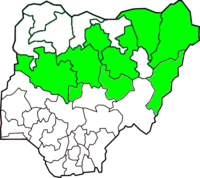
Canada, under its Criminal Code, has designated Boko Haram as a terrorist organization. The United States did so three weeks ago. The Canadian government also listed the Caucasus Emirate, a Dagestan-based Islamist group, as a terrorist organization. The group is blamed for the recent bombings in Volgograd.
-
-
Palestinian ambassador to Czech Republic killed in explosion
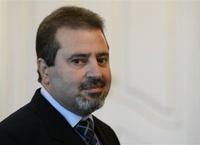
Jamal al-Jamal, the Palestinian ambassador to the Czech Republic, was killed yesterday in a blast at his home in Suchdol, an upscale suburb north of Prague. The blast is believed to have been caused by explosives stored in a safe. When he opened the safe, the explosives went off. Riad al-Maliki, the Palestinian foreign minister, said that the safe had not been opened in at least thirty years. The ambassador moved to the new building in October, and workers moved the safe, unopened, from the old offices of the Prague Palestinian mission to the new one at that time.
-
-
Volgograd under lockdown as Winter Games security worries grow
Volgograd has been placed under tight security after a Monday suicide bombing on trolleybus killed sixteen, one day after seventeen people were killed at a train station. For the Russian government, the attacks represent the worst possible scenario: an orchestrated bombing campaign during the run-up to the Winter Olympics – and during the games themselves — in a region too big, and with too many soft targets, to be secured effectively. Such a broad and well-coordinated terror campaign will overshadow – and might even seriously disrupt — the biggest international event on Russian soil since the 1980 Moscow Olympics.
-
-
Nigeria wants Cameroon’s help on Islamic insurgency
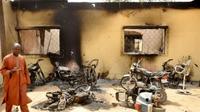
Nigeria has a problem: in the face of growing military campaign by the federal government against Islamist insurgents n three states in north-east Nigeria, some of the insurgents have found it safer to relocate to neighboring Cameroon. They launch their attacks against targets in north-east Nigeria – then retreat to the safety of Cameroon, where they know the Nigerian military will not pursue them. Nigeria wants Cameroon to take a more active role in preventing Islamist insurgents from using Cameroon’s territory as a safe haven.
-
-
No evidence al -Qaeda was involved in Benghazi attack: NYT report
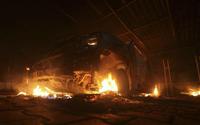
In the most detailed examination to date of the origins of the 2012 attack on the U.S. Benghazi facility, the New York Times, in a 6-part, 8,000 word in-depth report found no evidence that al Qaeda or any international terrorist groups played any role in the attack. The report says that a crude anti-Muslim video, made by an Egyptian with a checkered past now residing in California, in large part fueled the attack. The report says that the attack was not well-planned, but that it also was not a completely spontaneous reaction to the video. The report says that those who argue that al Qaeda was involved in the attack are confusing local extremist organizations like Ansar al-Shariah for al Qaeda’s international terrorist network.
-
-
Arafat died of natural causes, not radiation poisoning: Russian investigators
A team of Russian physicians and scientists investigating the 11 November 2004 death of Palestinian leader Yasser Arafat has concluded that his death was not caused by radiation poisoning. The conclusions of the Russian team are a blow to the Palestinian leadership, which, since 2004, has accused Israel of being behind Arafat’s death. The Russian team’s findings follow the findings of two other scientific investigative teams: a Swiss medical team, funded by Arafat’s widow, concluded that the radiation poisoning of Arafat could not be ruled out. The French scientific team, appointed by a French judge, concluded that the levels of polonium-210 in Arafat’s personal effects, and the complete absence of the radioactive isotope in his body tissues, made it impossible for Arafat to have been poisoned by polonium. The Russian team, hired by the Palestinian authority, reached the same conclusion the French team did. “It was a natural death; there was no impact of radiation,” Vladimir Uiba, the head of the Russian Federal Medical and Biological Agency, said.
-
-
Egypt designates Muslim Brotherhood a terrorist organization
Accusing the Muslim Brotherhood of being behind a Tuesday car-bomb attack on the police headquarters in the Niles Delta city of Mansoura, an attack which killed sixteen people and wounded more than 100, the Egyptian government on Wednesday designated the Muslim Brotherhood a terrorist group, thus making it a state crime not only to take part in the movement’s activities and contribute money to it, but criminalizing even registering for membership in the organization.
-
-
Student cannot sue TSA, FBI agents over airport detention for Arabic flashcards
A student detained at Philadelphia International airport over his Arabic flashcards cannot sue the individual TSA and FBI agents who held him in custody, an appeals court has ruled. The student, double-majoring in physics and Middle Eastern studies, carried Arabic-English flashcards in his backpack. Most of the cards carried everyday words such as “nice”, “sad,” and “friendly.” Some of the cards, however, included words like “bomb,” “terrorist,” and “explosion.” Chief Judge Theodore McKee of the Third Circuit Court of Appeals in Philadelphia noted that the student clearly had the right to have the materials, but “it is simply not reasonable to require TSA officials to turn a blind eye to someone trying to board an airplane carrying Arabic-English flashcards with words such as ‘bomb,’ ‘to kill,’ etc.” He added: “Rather, basic common sense would allow those officials to take reasonable and minimally intrusive steps to inquire into the potential passenger’s motivations.”
-
-
Not all questions about the Tsarnaev brothers have been answered

What caused Tamerlan and Dzhokhar Tsarnaev to plant two bombs at the Boston Marathon finish line continues to puzzle investigators. Understanding the information which was available to local and federal law enforcement authorities before and after the attack might help prevent a future attack.
-
-
Global terrorism increasing, but fewer attacks in Western world
Terrorism touched eighty-five countries in 2012, but just three — Pakistan, Iraq, and Afghanistan — suffered more than half of 2012’s attacks (54 percent) and fatalities (58 percent), according to new data released the other day by the National Consortium for the Study of Terrorism and Responses to Terrorism (START) Global Terrorism Database (GTD). In addition to illustrating a continued shift in location of attacks, the new data — with more than 8,400 terrorist attacks killing more than 15,400 people in 2012 — also show an increase in attacks and fatalities over the past decade. Al-Qaeda central was not directly responsible for any attacks in 2012, but the six deadliest terrorist groups in the world were all affiliated to some extent with the organization. These include the Taliban, Boko Haram, al-Qaeda in the Arabian Peninsula, Tehrik-e Taliban Pakistan, al-Qaeda in Iraq, and al-Shabaab.
-
-
Deepening ethnic violence in South Sudan may ultimately tear the new country apart
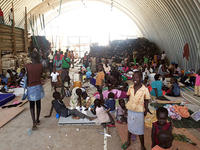
Following last week’s announcement by President Salva Kiir of South Sudan that his government had foiled a coup attempt by his former vice president, Riek Machar, the country has been plunged into uncertainty. Escalating violence has already claimed hundreds of lives in the capital Juba. Thousands have fed the capital, seeking safety in remote rural areas of the country. Kiir belongs to the Dinka tribe which is the largest ethnic group in the country, with about 15 percent of the population. Machar is a Nuer, the second largest group with about 10 percent of the population. In the capital, Dinka-led South Sudanese forces have targeted members of the Nuer ethnic group, killing many and detaining others, including soldiers, lawmakers, and students. Outside the capital, in Jonglei State, Nuer militiamen have been targeting Dinka civilians and attacking oil fields.
-
-
Major bomb plot thwarted in Northern Ireland
Police on both sides of the Irish border have collaborated to foil a major bomb attack on a target in Belfast. Gardaí and the Police Service of Northern Ireland (PSNI) said the plot was linked to the arrest of two teenagers at a house just north of the border in south Armagh on Wednesday, where bomb making materials and equipment were found. Security sources note that the discovery comes after two separate dissident republican bomb attacks in Belfast’s commercial center since Friday. Security has been stepped up not only in Belfast but also along the border in the run up to Christmas as the PSNI and Garda are cooperating in an effort to thwart dissident republicans from carrying out a so-called terrorist “spectacular” during the festive period.
-
-
New terrorist faction threatening U.S. interests in the Sahel
The State Department on Wednesday warned that a new terrorist group linked to an Algerian militant is now posing “the greatest near-term threat to U.S. and Western interests” in the Sahel region of Africa. U.S. is concerned with Mokhtar Belmokhtar, an Algerian militant who has been conducting terrorist operations in the Sahel region for a while. The Sahel is vast, sparsely populated desert area on the southern reaches of Sahara desert, stretching from Senegal in the west to Chad in the east.
-
-
Two Guantanamo detainees sent to Algeria over their objections
The Defense Departmentannounced earlier this month that it had repatriated two Guantánamo Bay detainees to Algeria despite requests from both men to halt the transfers because of fear of persecution. The repatriations were announced a day after the Pentagon said that a Sudanese man would be repatriated to Sudan after serving a portion of his sentence as required by a pretrial agreement. Human rights advocates criticize the move based on humanitarian grounds, while conservative groups consider the transfer as a national security risk. Both detainees arrived at Guantanamo in 2002 – one was arrested in Pakistan, the other in Bosnia.
-
-
First French casualties in the Central African Republic highlight mission’s difficulties
Last week, less than a week after their arrival, two French soldiers were killed in the Central African Republic (CAR). The incident highlights the difficulty French troops face in an unstable country teetering on the brink of total chaos, and where international observers are worried about possible genocide, reminiscent of the Rwandan genocide in the 1990s.
-
- All
- Regional
- Water
- Biometrics
- Borders/Immig
- Business
- Cybersecurity
- Detection
- Disasters
- Government
- Infrastructure
- International
- Public health
- Public Safety
- Communication interoperabillity
- Emergency services
- Emergency medical services
- Fire
- First response
- IEDs
- Law Enforcement
- Law Enforcement Technology
- Military technology
- Nonlethal weapons
- Nuclear weapons
- Personal protection equipment
- Police
- Notification /alert systems
- Situational awareness
- Weapons systems
- Sci-Tech
- Sector Reports
- Surveillance
- Transportation
Advertising & Marketing: advertise@newswirepubs.com
Editorial: editor@newswirepubs.com
General: info@newswirepubs.com
2010-2011 © News Wire Publications, LLC News Wire Publications, LLC
220 Old Country Road | Suite 200 | Mineola | New York | 11501
Permissions and Policies
Editorial: editor@newswirepubs.com
General: info@newswirepubs.com
2010-2011 © News Wire Publications, LLC News Wire Publications, LLC
220 Old Country Road | Suite 200 | Mineola | New York | 11501
Permissions and Policies
